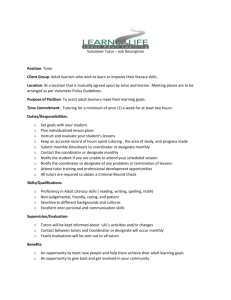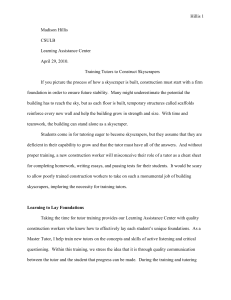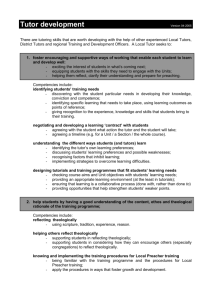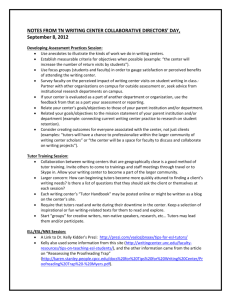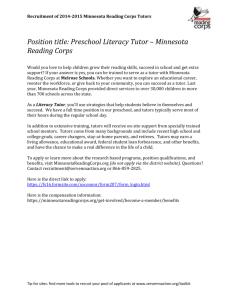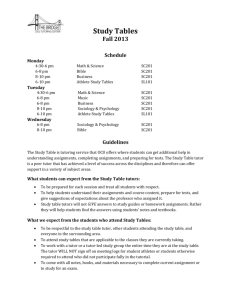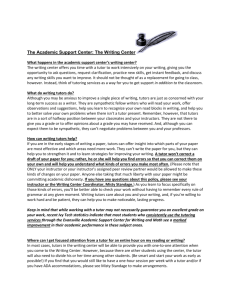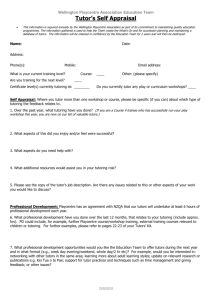Alvarez Tutor Essay
advertisement
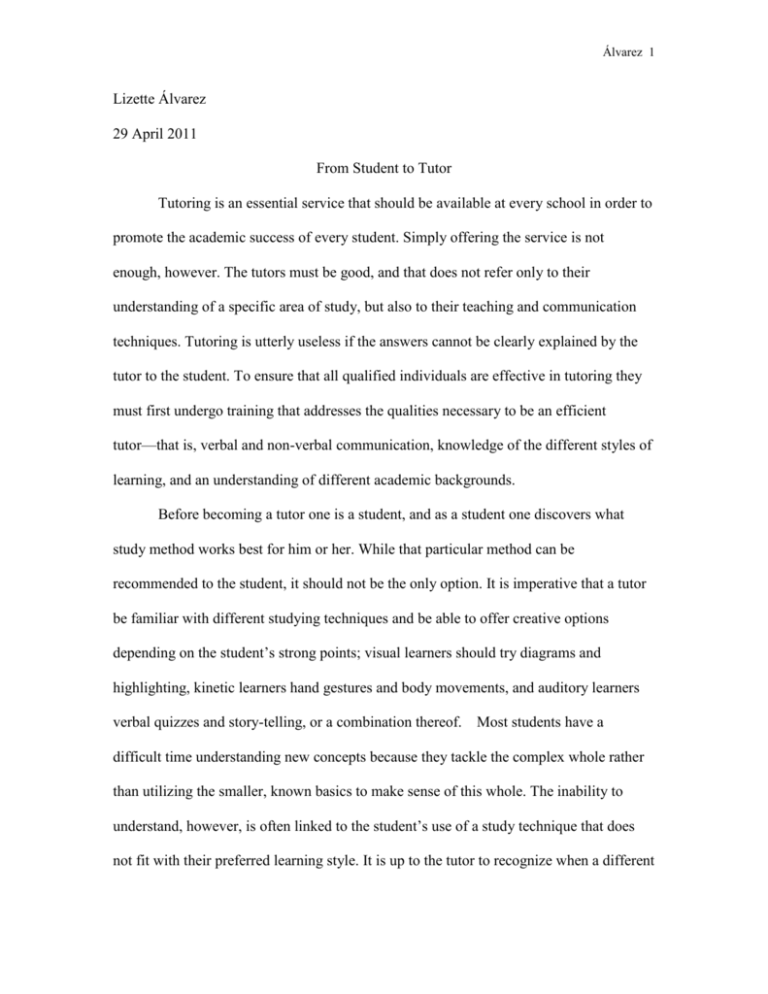
Álvarez 1 Lizette Álvarez 29 April 2011 From Student to Tutor Tutoring is an essential service that should be available at every school in order to promote the academic success of every student. Simply offering the service is not enough, however. The tutors must be good, and that does not refer only to their understanding of a specific area of study, but also to their teaching and communication techniques. Tutoring is utterly useless if the answers cannot be clearly explained by the tutor to the student. To ensure that all qualified individuals are effective in tutoring they must first undergo training that addresses the qualities necessary to be an efficient tutor—that is, verbal and non-verbal communication, knowledge of the different styles of learning, and an understanding of different academic backgrounds. Before becoming a tutor one is a student, and as a student one discovers what study method works best for him or her. While that particular method can be recommended to the student, it should not be the only option. It is imperative that a tutor be familiar with different studying techniques and be able to offer creative options depending on the student’s strong points; visual learners should try diagrams and highlighting, kinetic learners hand gestures and body movements, and auditory learners verbal quizzes and story-telling, or a combination thereof. Most students have a difficult time understanding new concepts because they tackle the complex whole rather than utilizing the smaller, known basics to make sense of this whole. The inability to understand, however, is often linked to the student’s use of a study technique that does not fit with their preferred learning style. It is up to the tutor to recognize when a different Álvarez 2 method of study should be used and recommend it to the student accordingly. While a teacher provides students with new information, it is a tutor’s job to review said information and prepare a student to become an independent learner. Many people tend to think that a tutor simply provides answers, this is the general idea that some new tutors at first have as well. At the Learning Assistance Center, I am entrusted with the task of running the questioning techniques workshop for new tutors. In the workshop, tutors become aware of and practice the necessary questioning techniques to influence the students’ manner of reasoning; rather than providing them with answers, tutors learn how to show students what path to take to arrive to the answers themselves, therefore promoting independent learning. Tutors often deal with a diverse group of people culturally, academically, and with different personalities. Many times students seek tutoring due to low grades which often lowers their self-esteem, affecting their performance. It is part of the tutor’s job as a mentor to help them not only acquire the necessary skills for learning but the right attitude as well. While the need to comfort and empower these students may come naturally to some, others may feel uncomfortable in such a situation; training helps tutors share advice and experiences to prepare for this and other types of situations.

